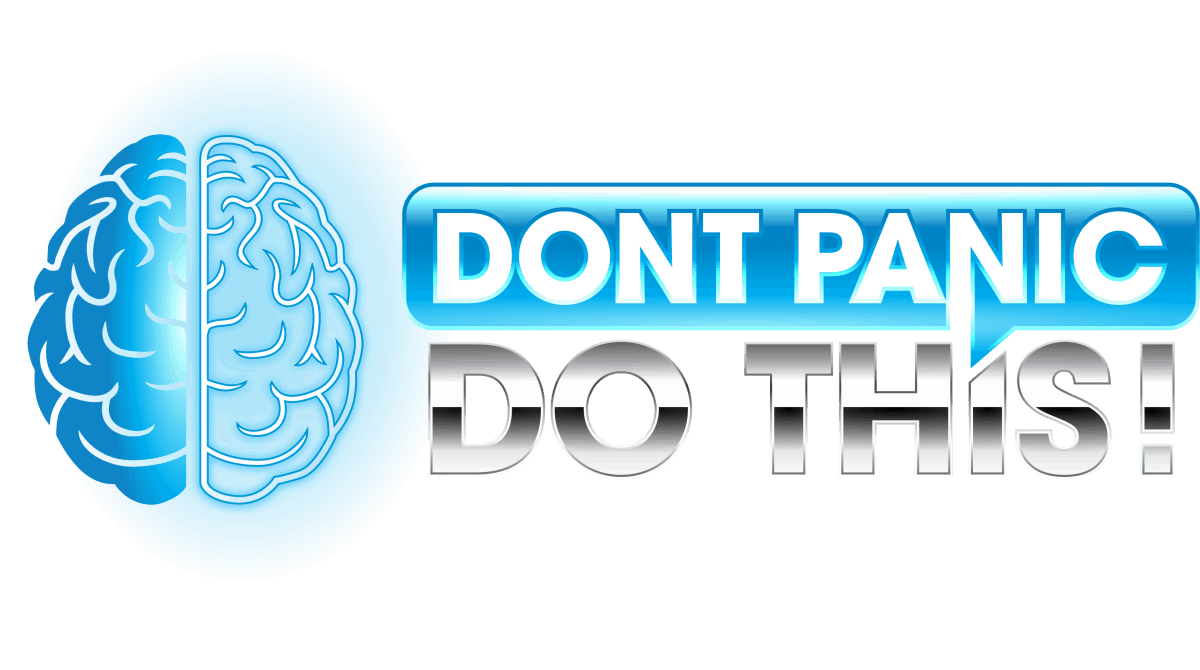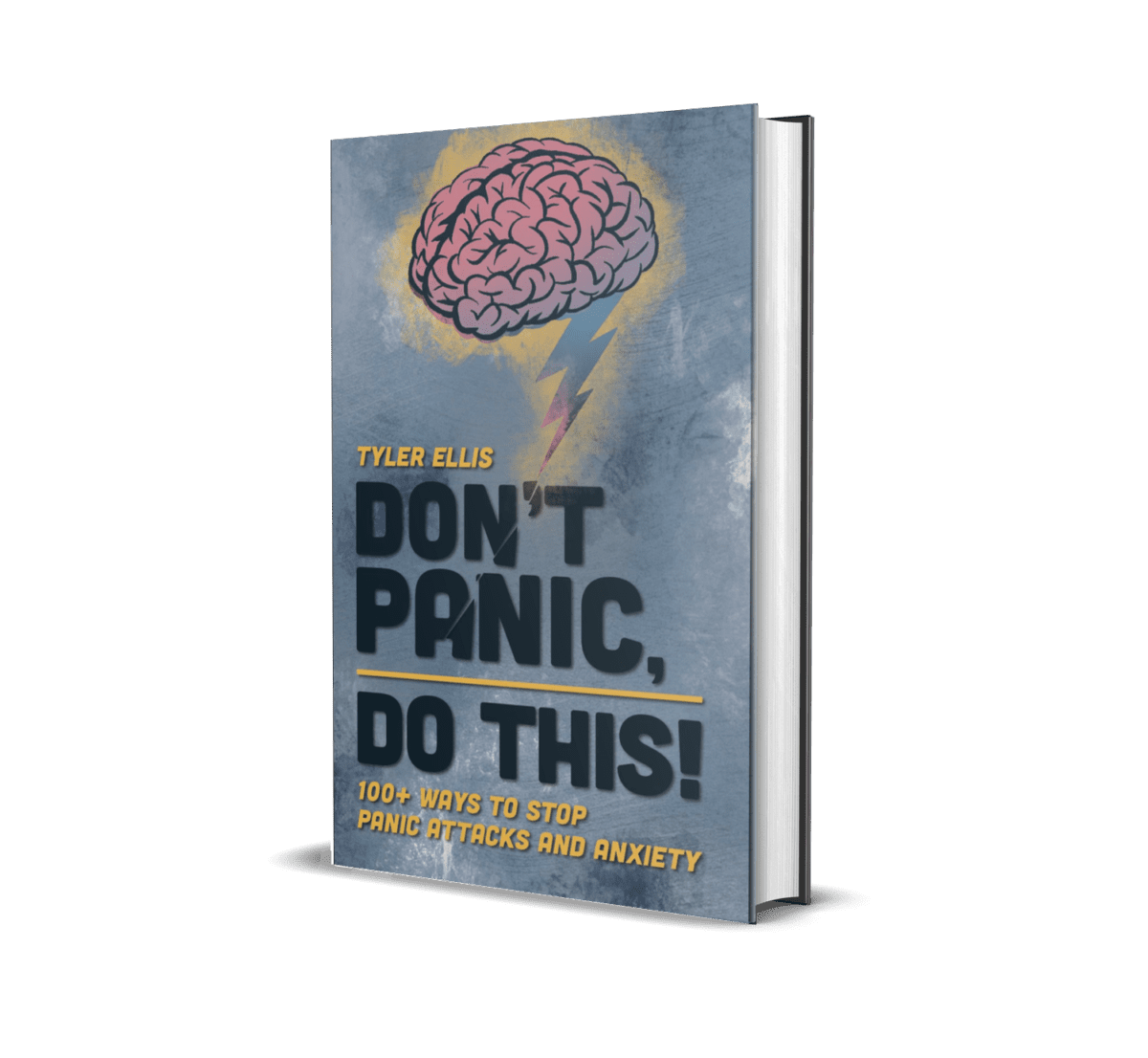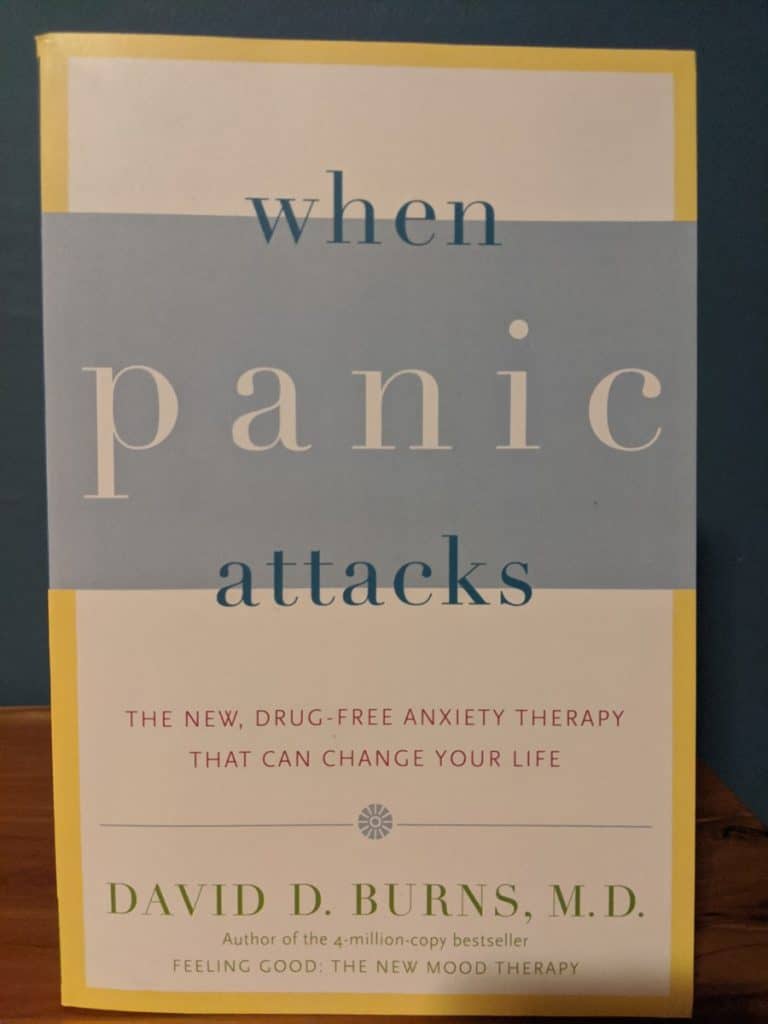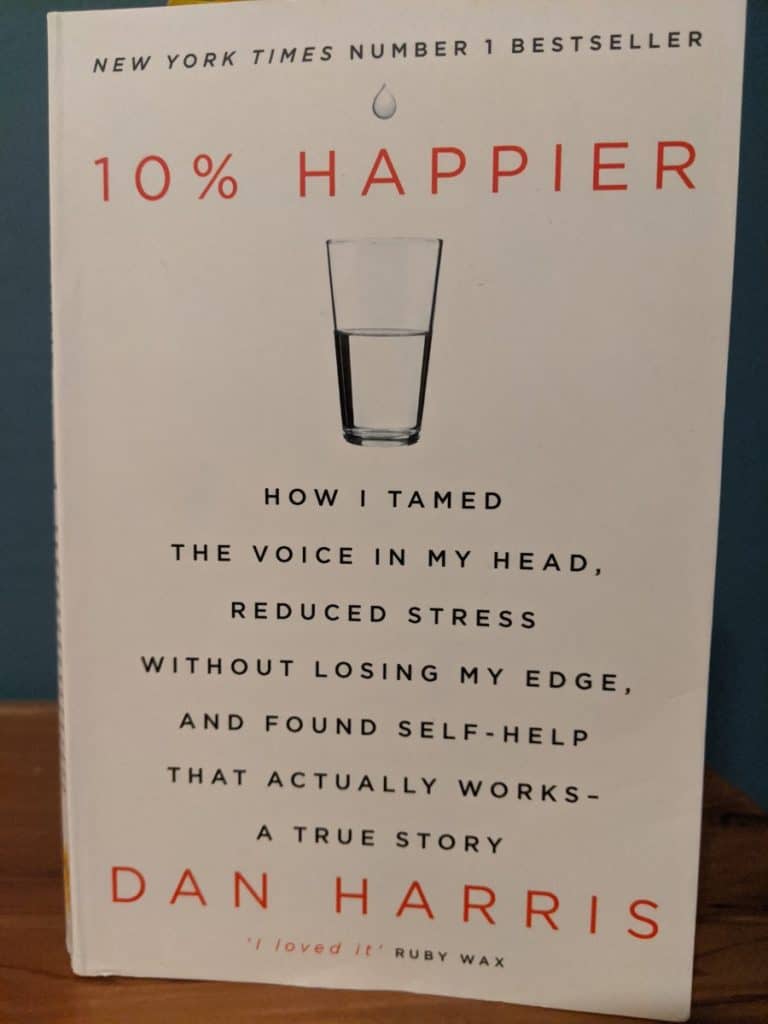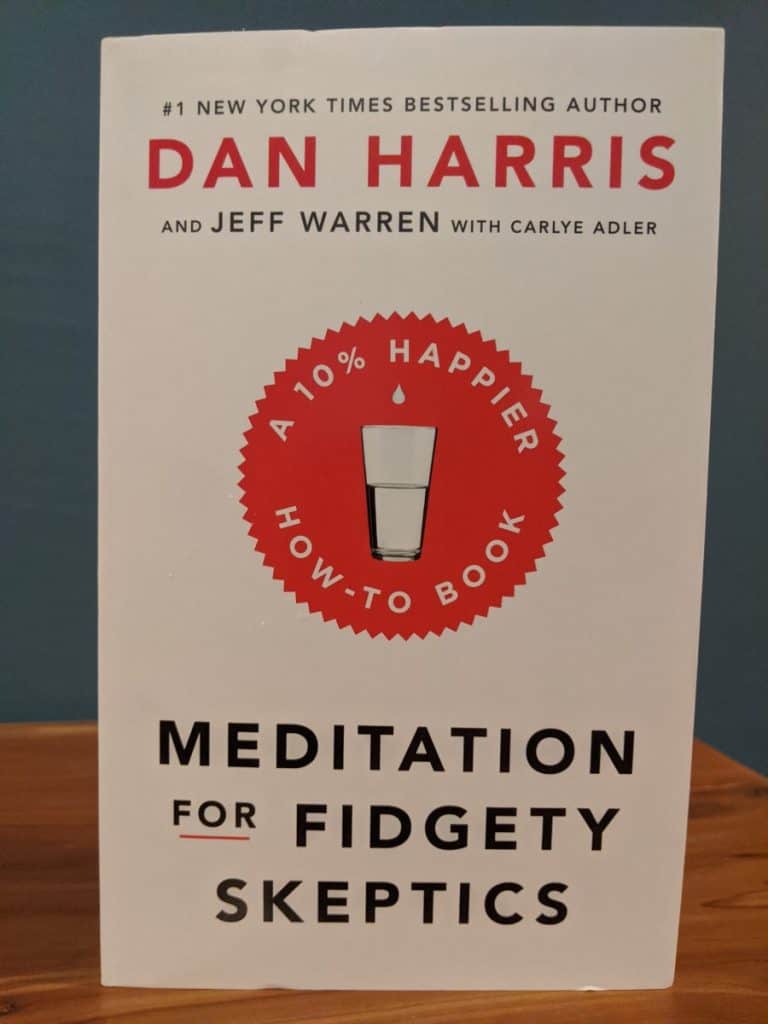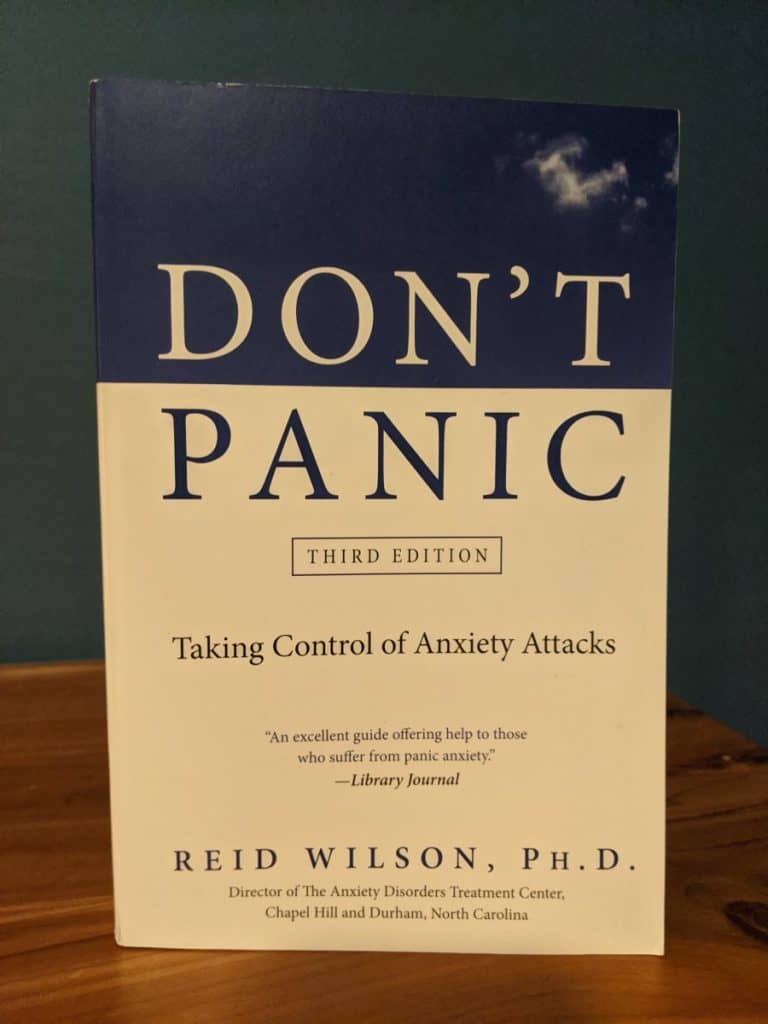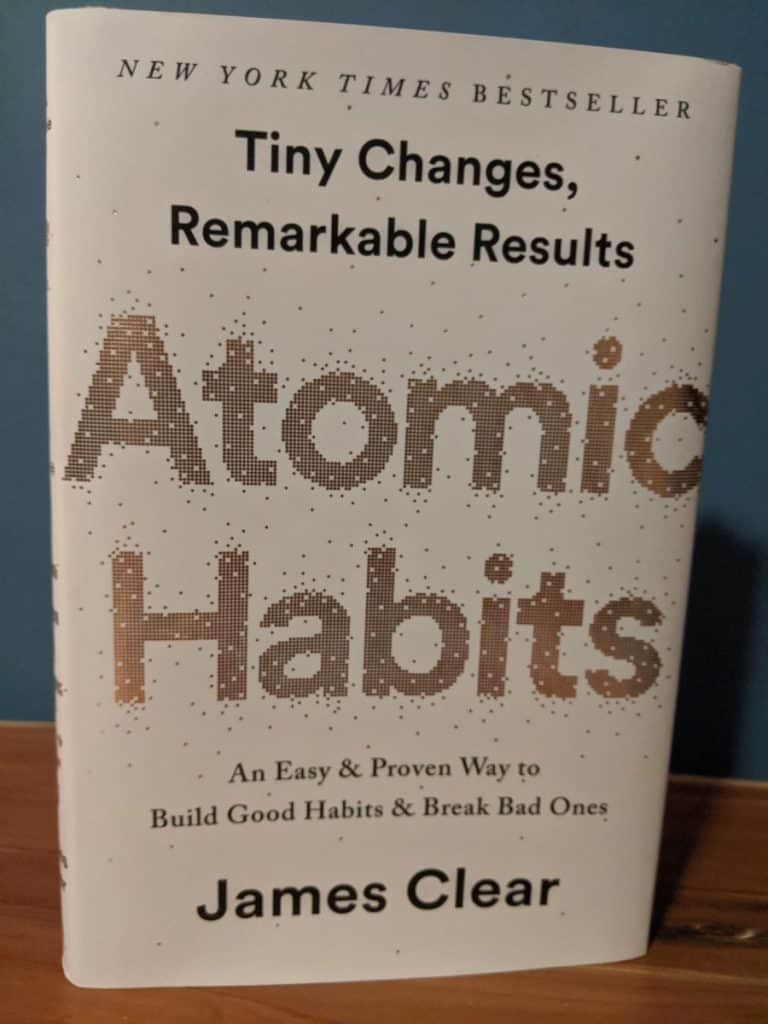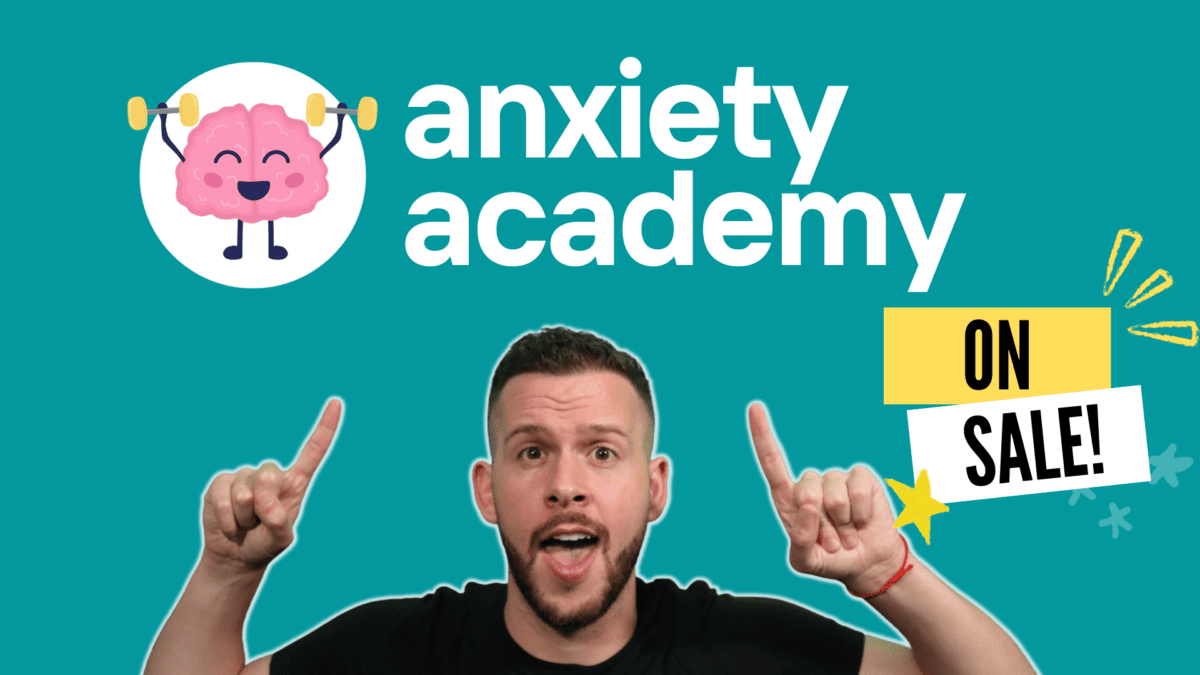As you learn to cope with your anxiety, you may often feel as though you are alone; but this couldn’t be further from the truth. The fact is, hundreds of millions of people from all over the world have already walked the path you’re on – and you can take advantage of the lessons they’ve learned along the way. So, what are the best books on anxiety?
- Don't Panic, Do This!
- When Panic Attacks
- Don't Panic
- 10% Happier
- Meditation for Fidgety Skeptics
- Atomic Habits
When it comes to beating anxiety, knowledge is the greatest tool you have at your disposal. Not all of these books focus directly on anxiety, but each adds considerable value towards understanding and conquering it. I’ll give a summary of each of these books below to help you get an idea for which might be the most useful to you.
Don't Panic, Do This!
Hey... does that book title sound familiar?
Forgive me for this bit of shameless self promotion, but no list of great anxiety books would be complete without my own!
Don't Panic, Do This! takes an unconventional approach to managing panic attacks and anxiety. Unlike other books on the topic, this book was designed to be easily understood by even those with no prior knowledge of psychology or anxiety.
With over 100+ different methods to help stop and prevent panic attacks and anxiety, this book is the culmination of everything I learned about anxiety; Not just in my psychology courses, but in over a decade struggling to conquer my own panic attacks and anxiety.
Best of all, perhaps, this book does not need to be read from front to cover; simply flip to any random page to learn a new, ready-to-use coping mechanism.
Who this book is for: People who experience panic attacks but would probably never buy a book about them. Anyone who wants quick-ready-to-use actionable calming strategies rather than having to read anything too in-depth or encyclopedic.
Learn More: Buy it here. (Thanks, and let me know how you like it!)
When Panic Attacks
When Panic Attacks is a book that focuses on the self-help treatment of anxiety and panic disorder. Interestingly, Dr. Burns starts the book by discussing some surprising studies about how, for many people, the right self-help book including CBT (Cognitive-Behavioral Therapy) methods can be just as effective as seeing a therapist in-person.
Dr. Burns offers the reader insight into the root causes of panic attacks and anxiety. He teaches the reader about CBT methods, which he consider to be more effective than other psychotherapy methods. He also considers his methods to be more effective than medication at treating anxiety in the long term (an anti-pharmaceutical stance I often agree with).
Within the book are over 40 different Cognitive-Behavioral Therapy techniques designed to help the reader overcome anxiety; all highly practical. Perhaps most useful, Dr. Burns frequently includes actionable exercises and worksheets that can be filled in or copied from the book. This can be an extremely cost-effective way to begin self-treating an anxiety disorder without medication.
Who this book is for: Anyone interesting in understanding and beating their anxiety from home. In-person therapy sessions are great, but if the price point of therapy is holding you back, this may be just as good of a place to start for most people.
Learn More: Buy it here. (I like the physical copy for the worksheets)
10% Happier
In 2004, anchorman Dan Harris had a panic attack on live TV in front of over 5 million viewers. In his book 10% Happier, Harris walks us through his personal life and the circumstances that led to this panic attack; including a stressful career environment, drug use, and other contributing factors.
The book goes on to follow Harris’ journey to find a way to “quiet the voice in his head” (the voice that commands our anxious and negative thoughts). Harris takes us through his journey, teaching us what he learned along the way from renowned figures from Mark Epstein to the Dalai Lama. Harris eventually lands on the practice of meditation; touting its mental and scientific benefits, stripped of all religious and spiritual decorum.
This book really shines for me due to Harris’ natural skepticism. He’s clearly not a man who is easily convinced, which makes it all the more impactful when he finally tells us what he’s learned about the practice of meditation. Harris suggests that, through purposeful meditation, we can all achieve tangible and practical benefits. We can learn to silence our inner monologue at will, and become 10% happier.
Who this book is for: This book is perfect for anyone who previously dismissed meditation as “spiritual nonsense.” Harris does an excellent job of appealing to skeptics like myself, and shows us why everyone from CEOs to Marines are taking advantage of meditation: the “new caffeine.” If you have anxiety and have never considered meditating, this book is an excellent place to start.
Learn More: Read my full review of 10% Happier, or Buy it here.
Meditation for Fidgety Skeptics
After writing 10% Happier, Dan Harris realized that his job wasn’t quite done yet. His first book did an excellent job of dispelling the common misconceptions surrounding meditation; at the very least it managed to convince skeptics to take a second look at meditation. But getting his readers interested wasn’t enough to get them to build a habit of meditation that stuck.
This was Harris’ goal in writing Meditation for Fidgety Skeptics. This sequel to 10% Happier focuses more on the practice of meditation itself, and how to make it a habit in your daily life. According to Harris, 5 to 10 minutes of meditation per day is enough to achieve significant benefits; in fact, even one minute every other day or so will likely yield results.
Harris works with meditation expert Jeff Warren to help convince the reader that no matter what excuses they are coming up with for not meditating, they can find some time each day to dedicate to the practice. Additionally, they provide how-to guides on many different types of meditations, so that the reader can explore what works best for them.
Who this book is for: This book is perfect for anyone who has developed an interest in meditation but doesn’t know where to start. For “fidgety skeptics,” or just anxious individuals who have not been able to find the time or willpower to meditate. If you have no interest in meditation, I’d start with 10% Happier. If you’re already interested, you can jump right to Meditation for Fidgety Skeptics.
Learn More: .Buy it here.
Don’t Panic
Don’t Panic, by Dr. Reid Wilson helps readers to understand and overcome their panic attacks. Unlike many other books on anxiety, Don’t Panic focuses specifically on panic attacks and panic disorder. This makes it a valuable resource for anyone who has just had their first panic attack, or anyone trying to better understand panic disorder.
In this book, Dr. Reid takes us through the various steps required to identify, understand, and control a panic attack. His strategies are useful, and highly practical, making this a great resource for anyone who might feel as though their panic attacks are starting to get the better of them.
Who this book is for: This book is perfect for anyone suffering from panic attacks or panic disorder. You do not need to have any background knowledge of anxiety to benefit from this book.
Learn More: Buy it here.
Also Check Out: Dr. Reid Wilson's personal anxiety website, anxieties.com.
Atomic Habits
Alright, so this book isn’t actually about anxiety at all. With that said, this was one of the books I had most frequently recommended to me time and time again. After reading it, it’s become one of the books I most often recommend to others. Atomic Habits, by James Clear, does a fantastic job of explaining the exponential power of small habits.
The strategies in this book are backed by science rather than motivational fluff, which is something I can certainly appreciate. Everything in it is practical and actionable. This makes it an excellent book for anyone looking to improve their life and achieve their goals. But why am I listing this amongst the best anxiety books, you might ask?
Anxiety disorders often become deeply rooted in our habits. Bad habits, like avoidance, strengthen our anxiety over time. Good habits, like gradual exposure, help us regain control. These habits can become so ingrained in the minutia of our daily lives that we cease to even recognize them. When you’re ready to recognize and correct such habits, this book is an excellent place to start.
Who this book is for: Anyone, with or without anxiety, who is looking to improve their life by fixing bad habits and building good ones.
Learn More: Buy it here.
